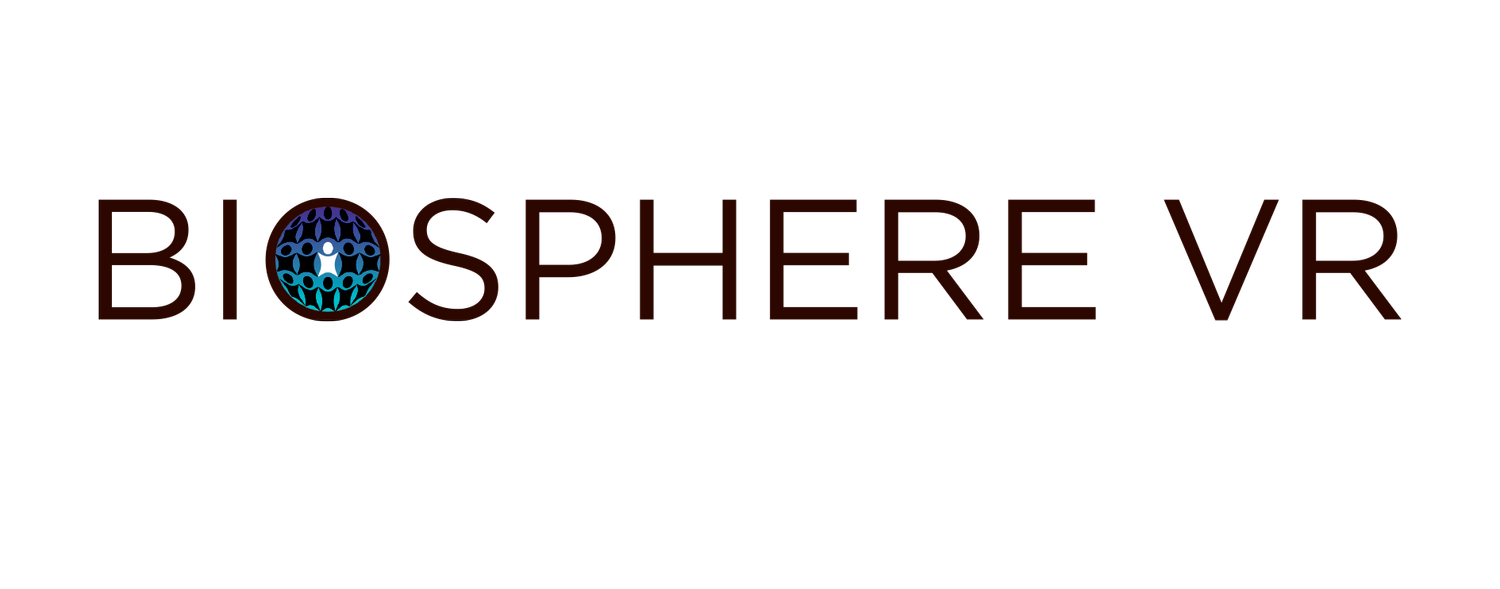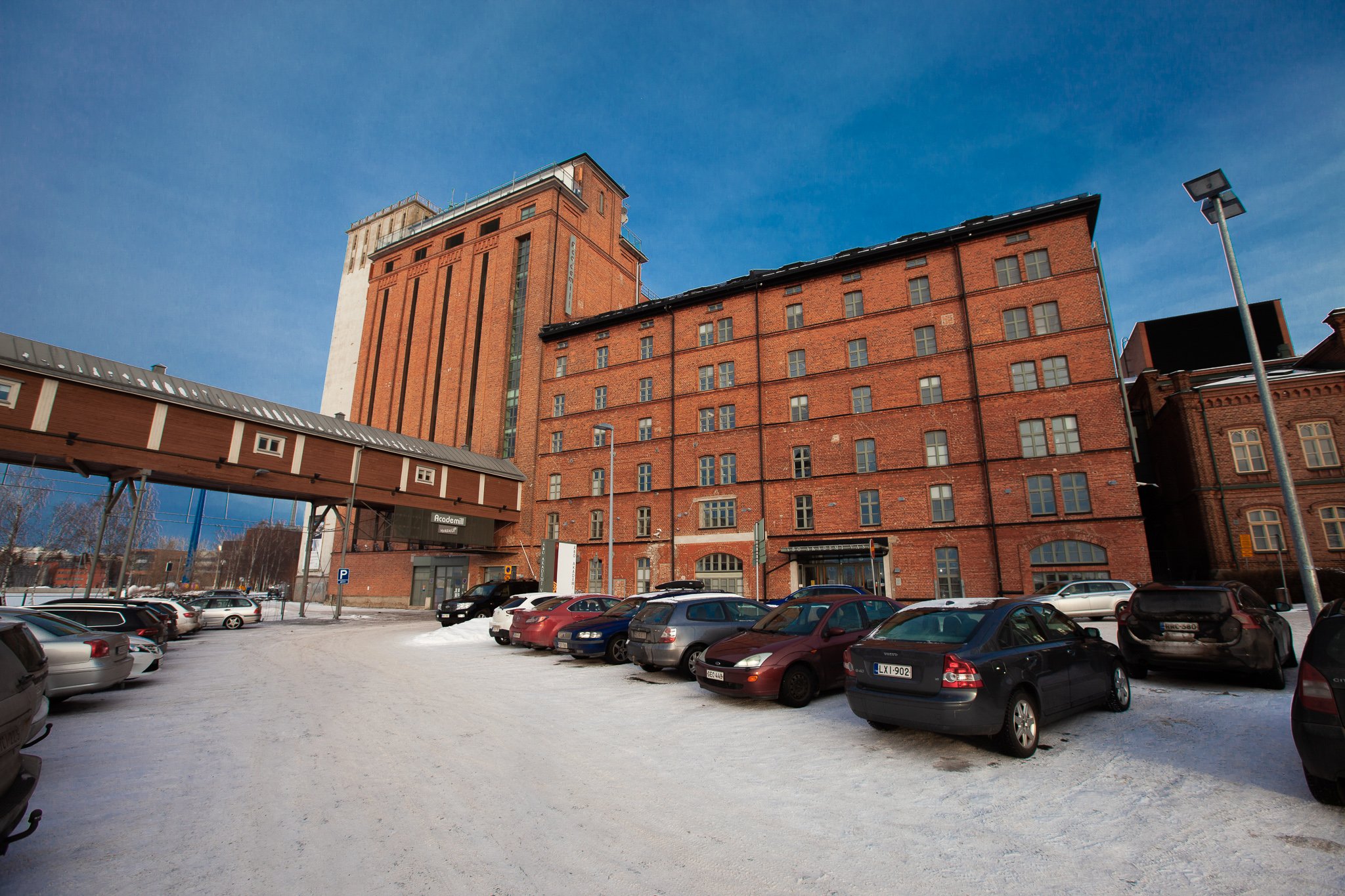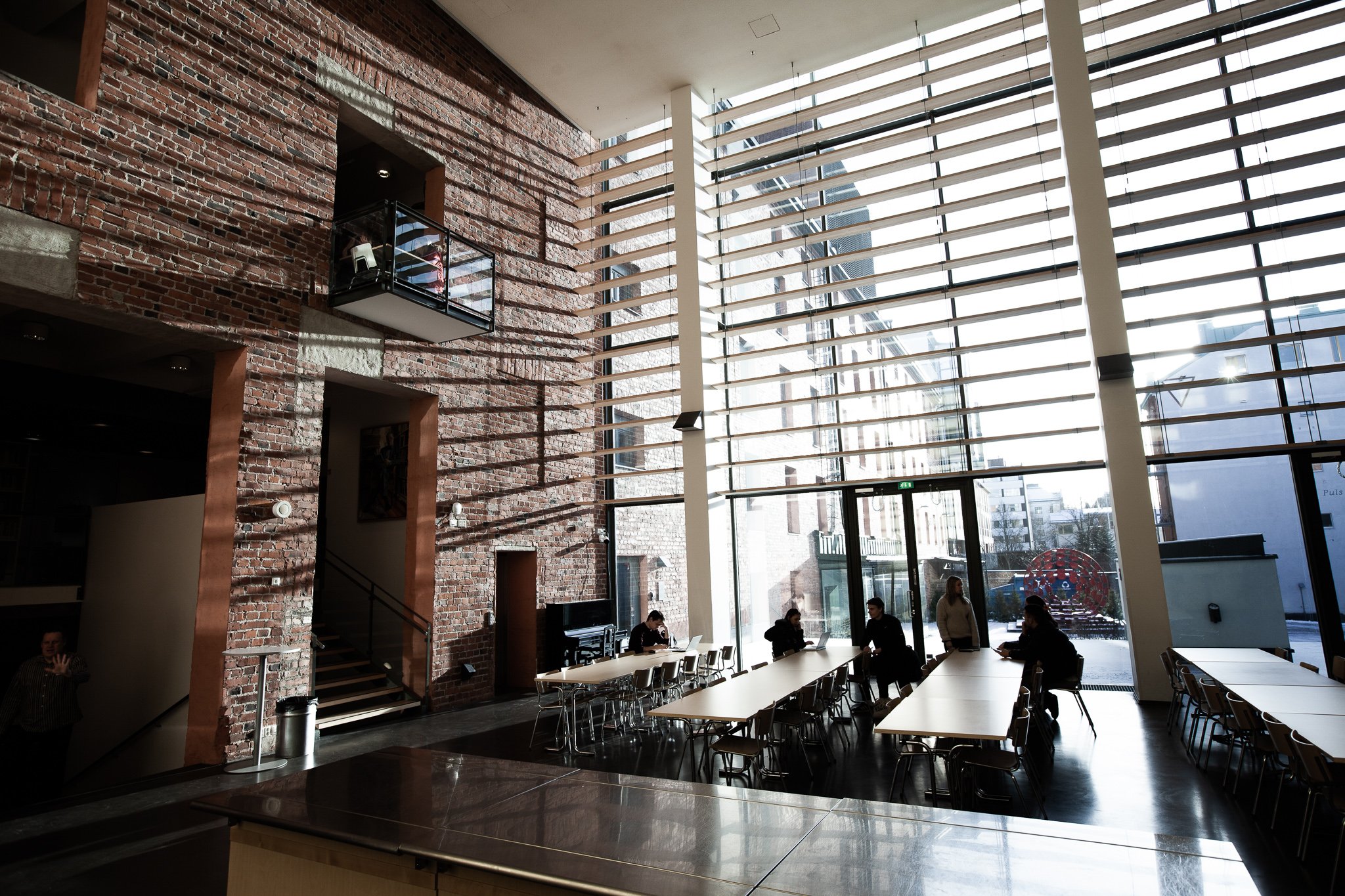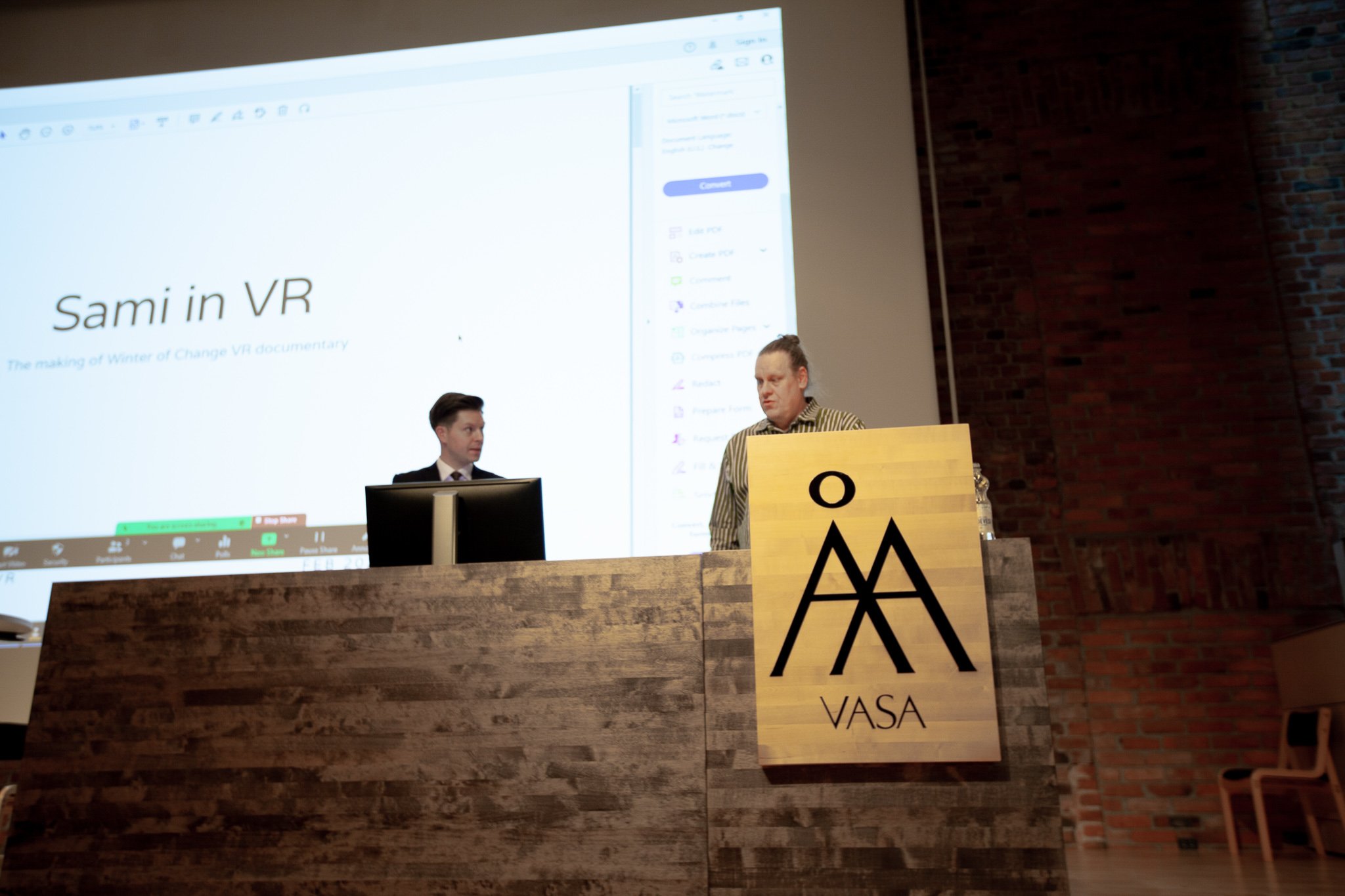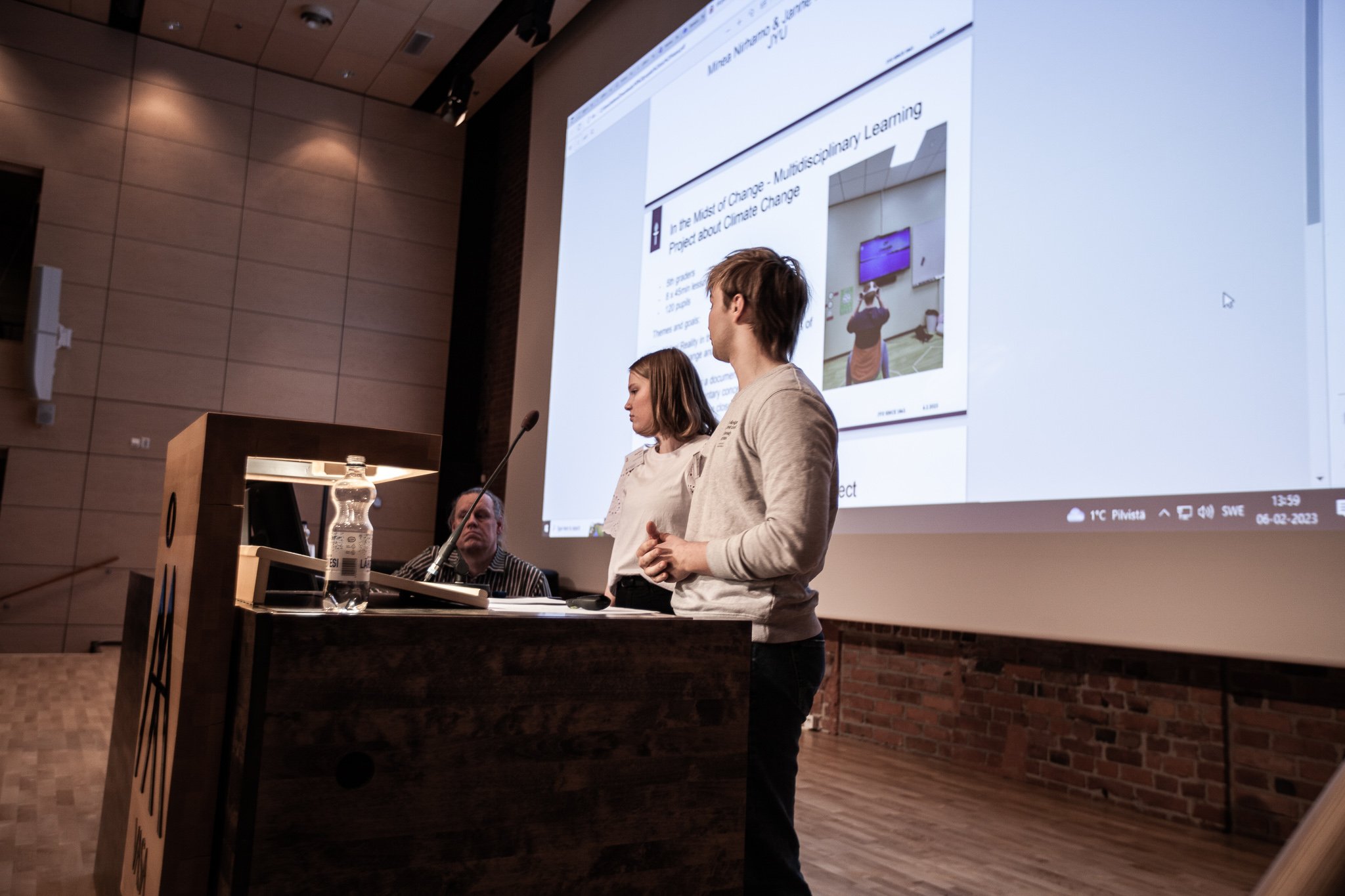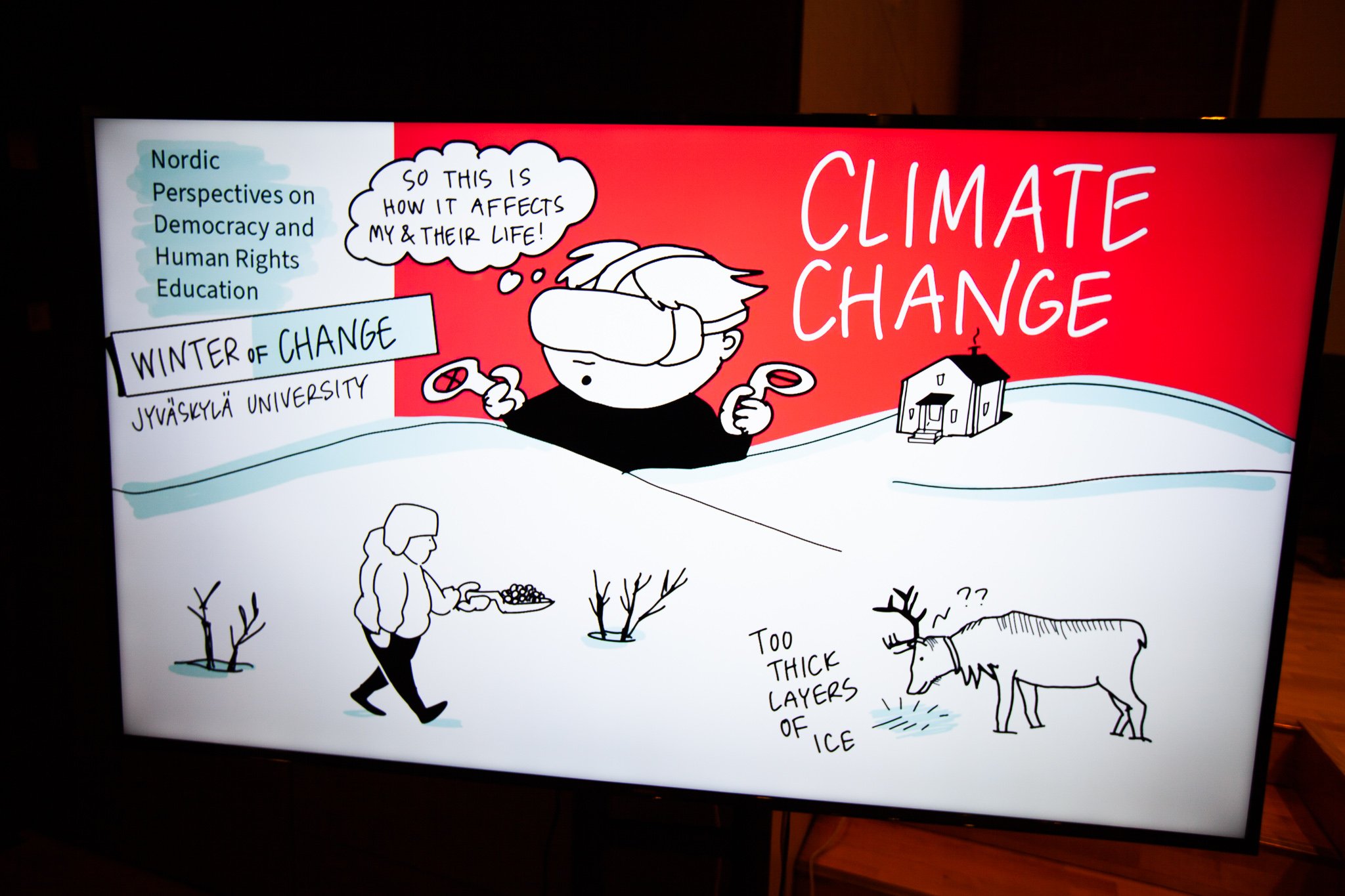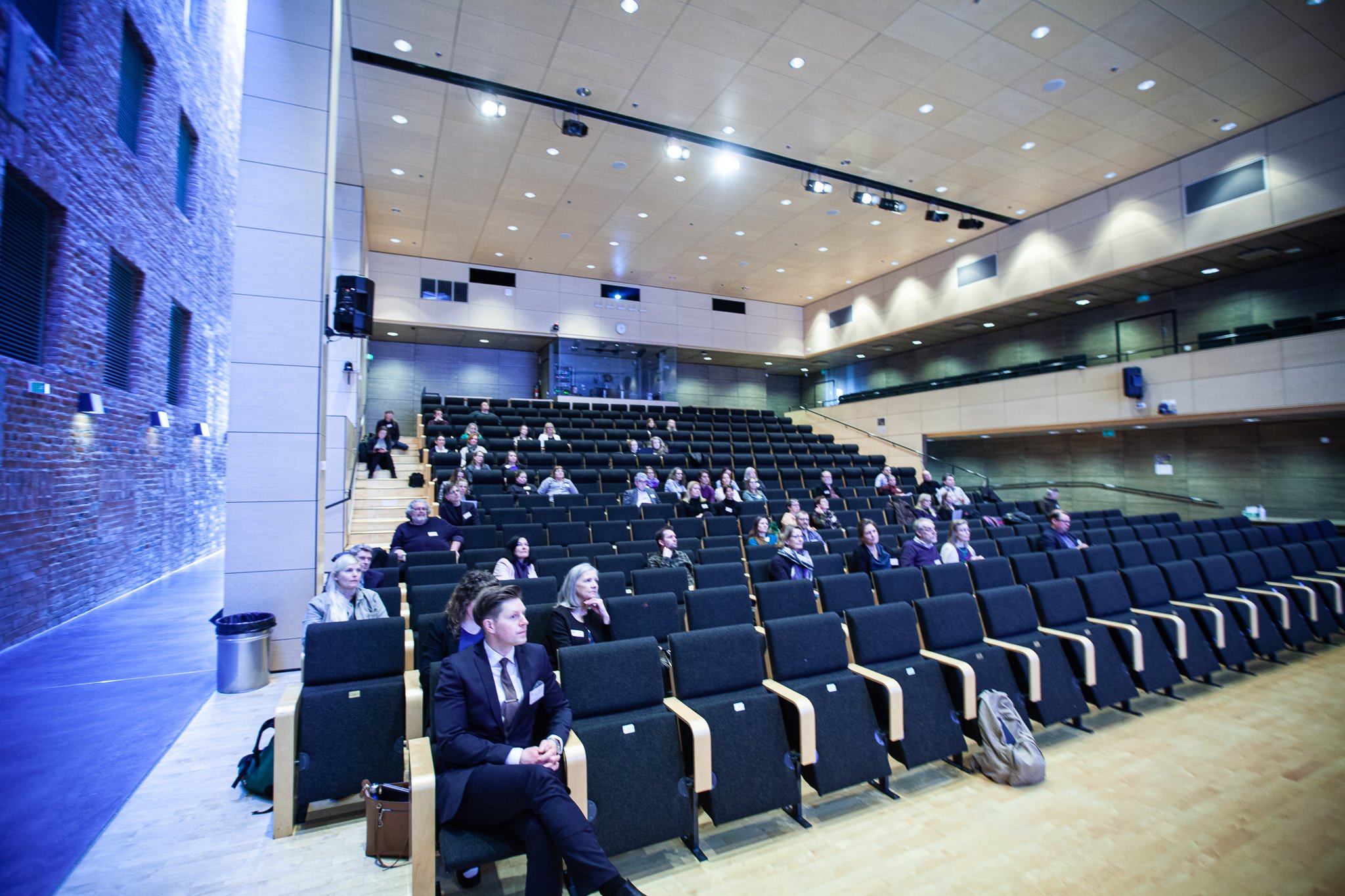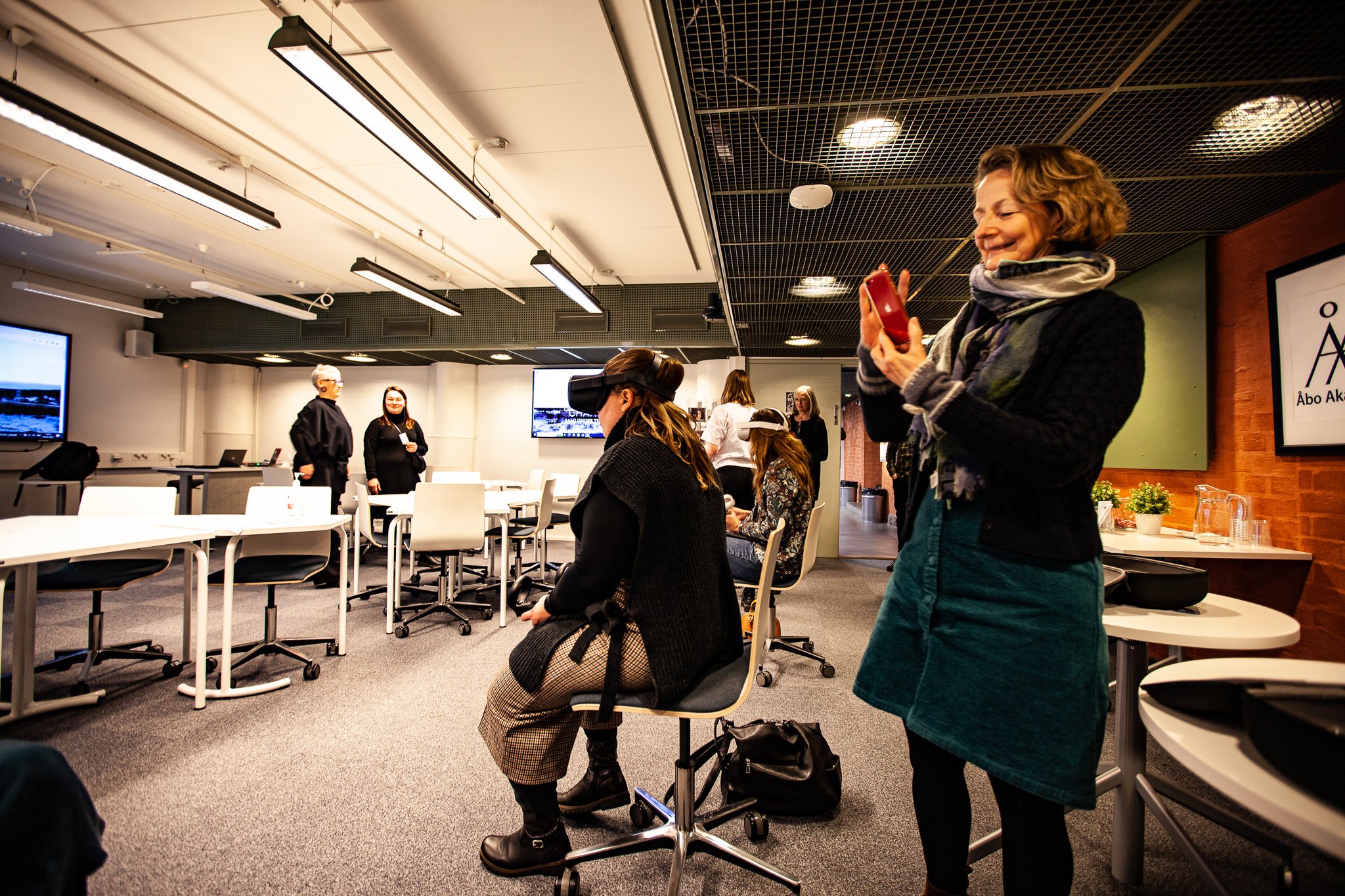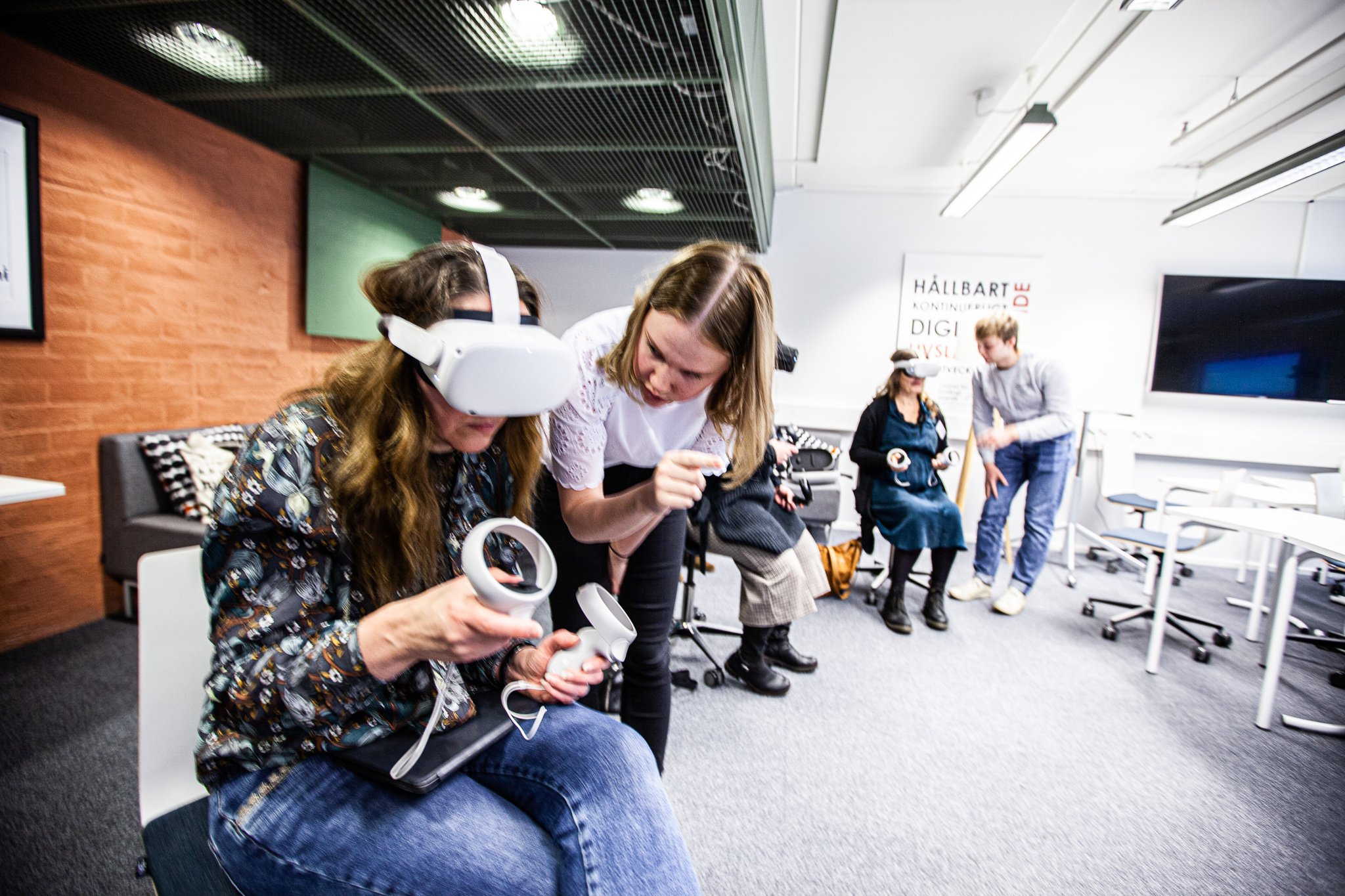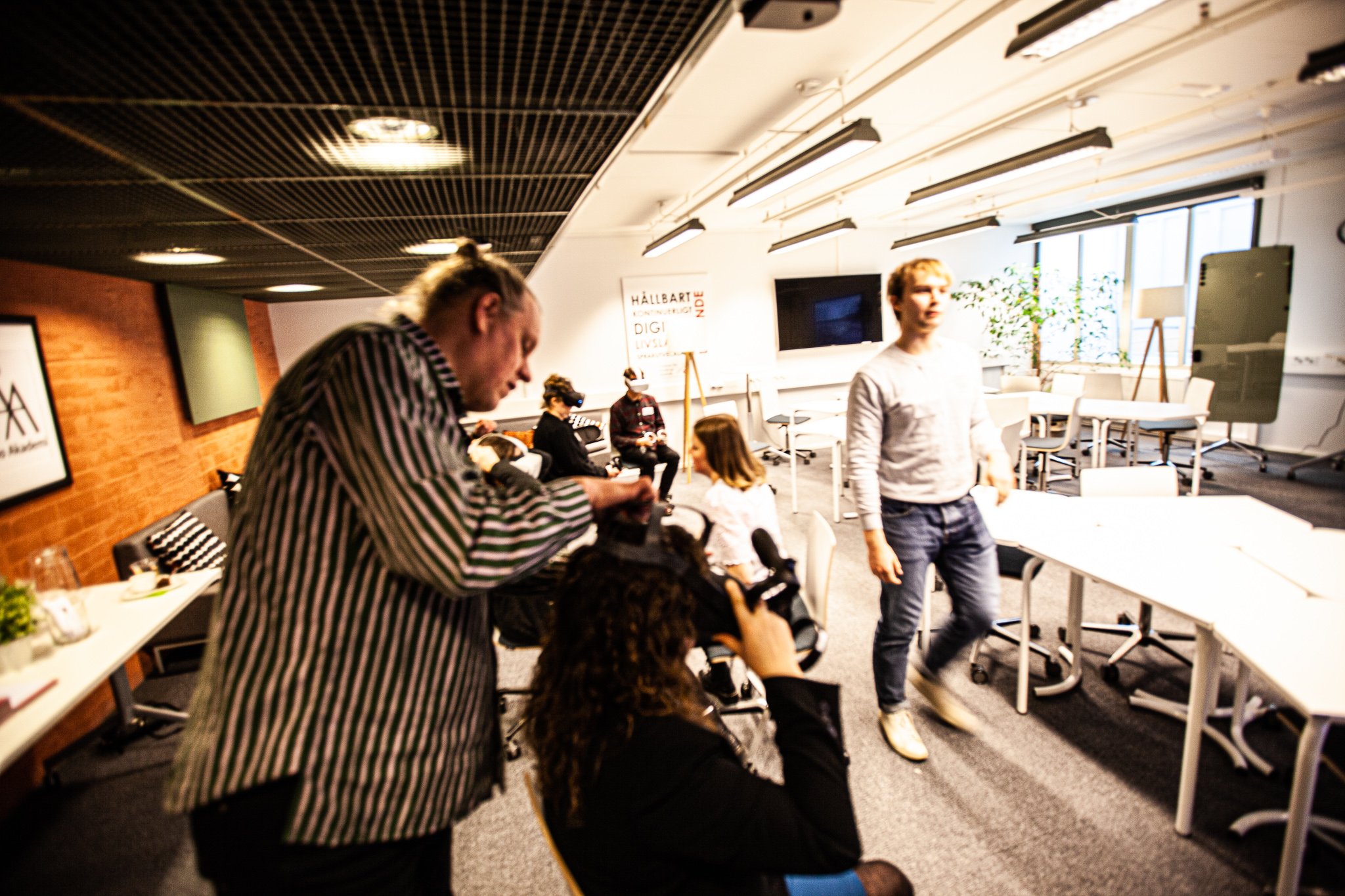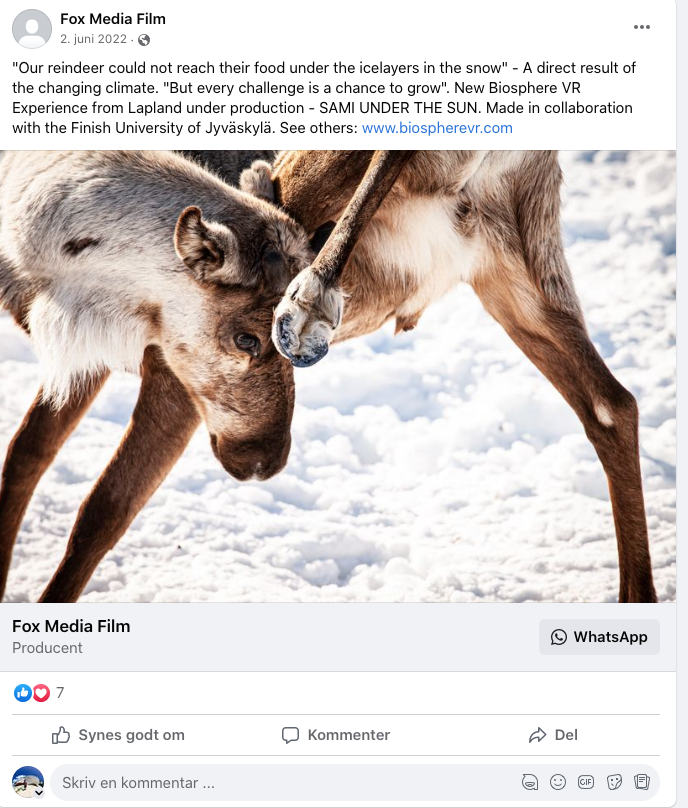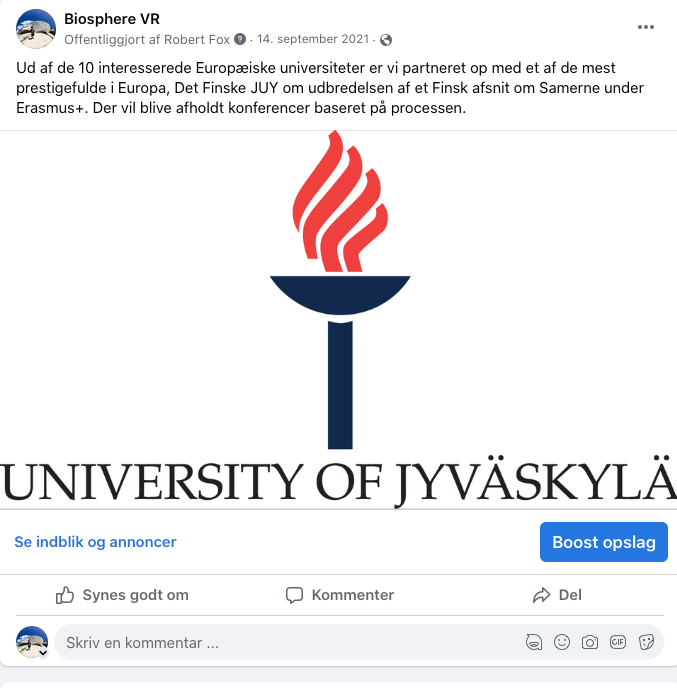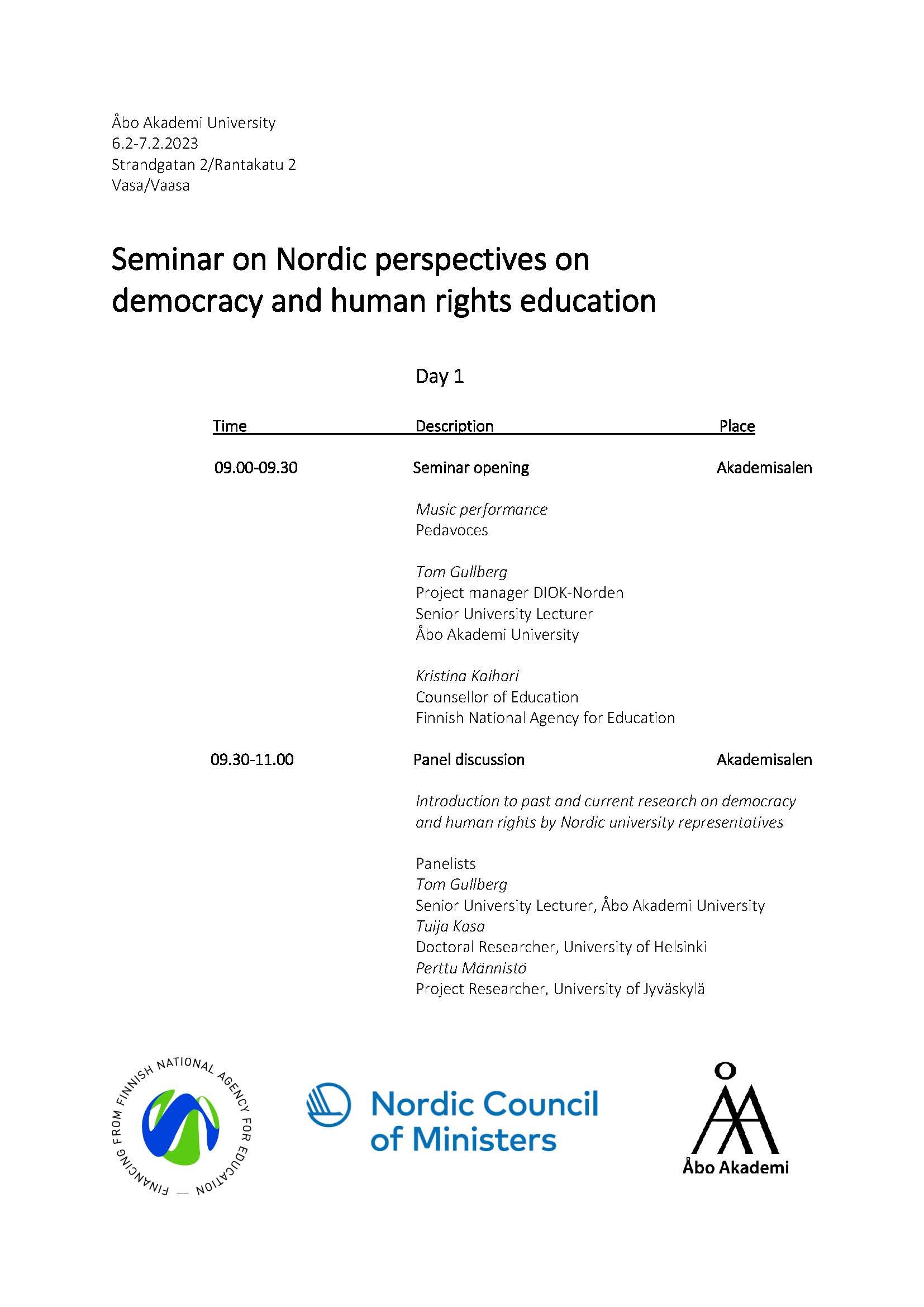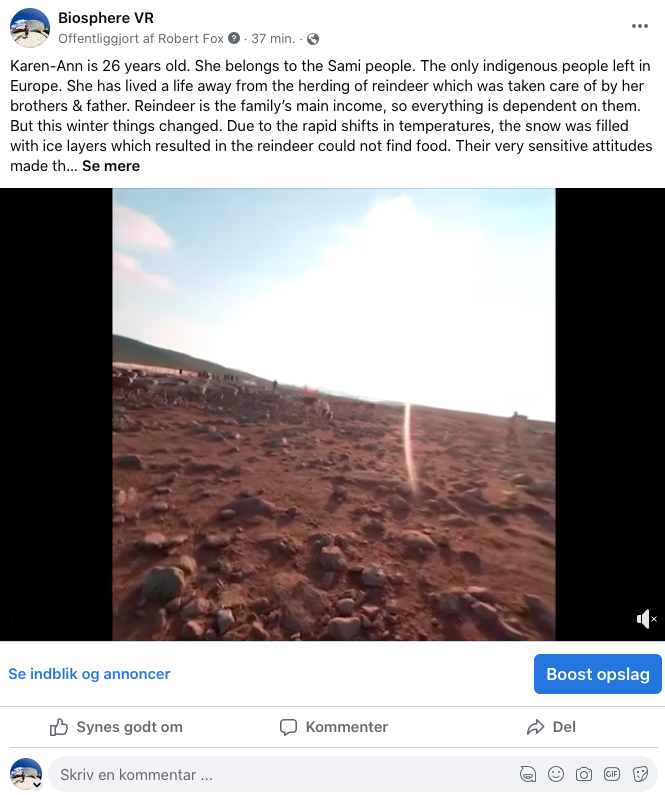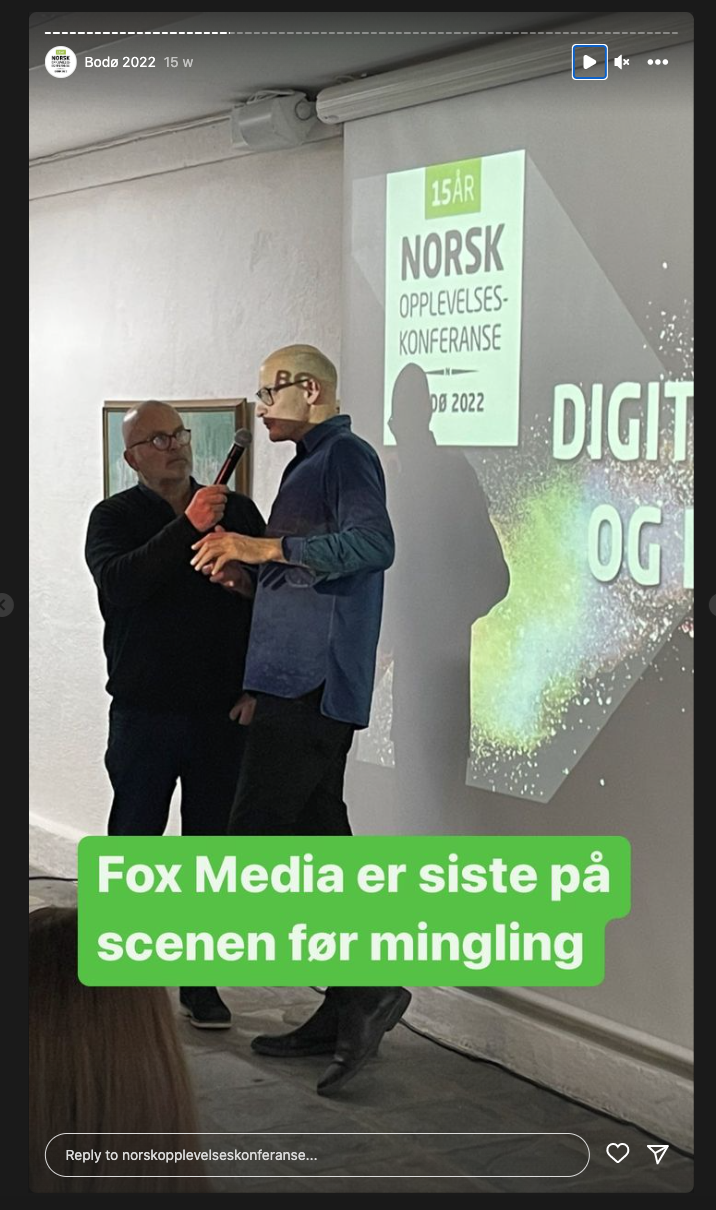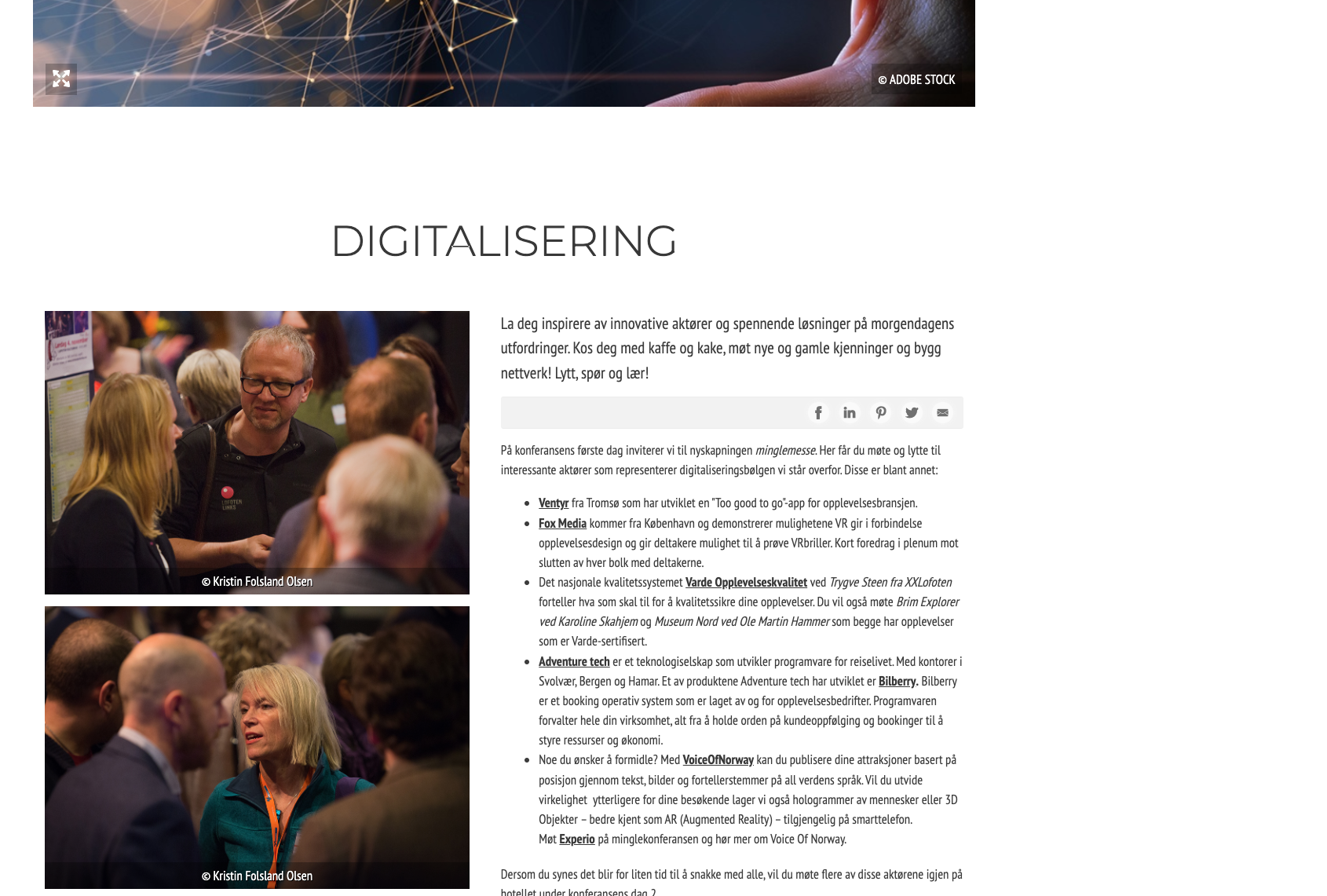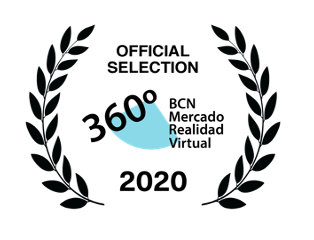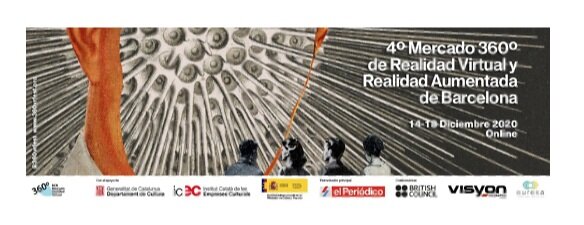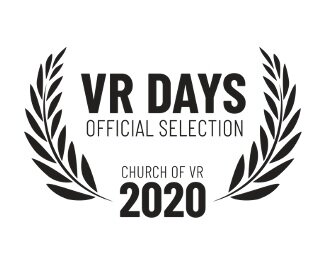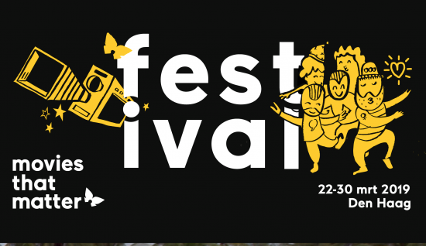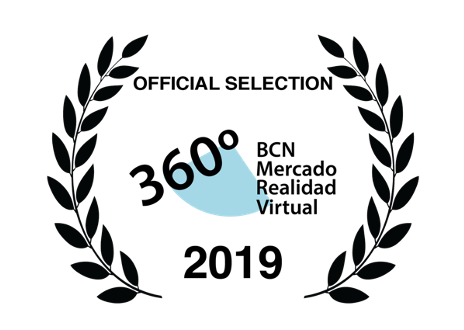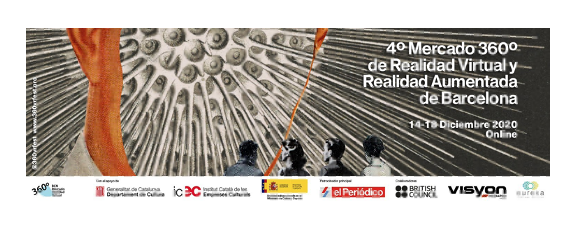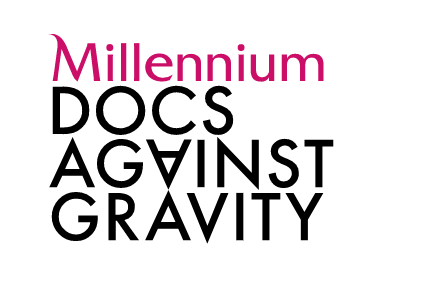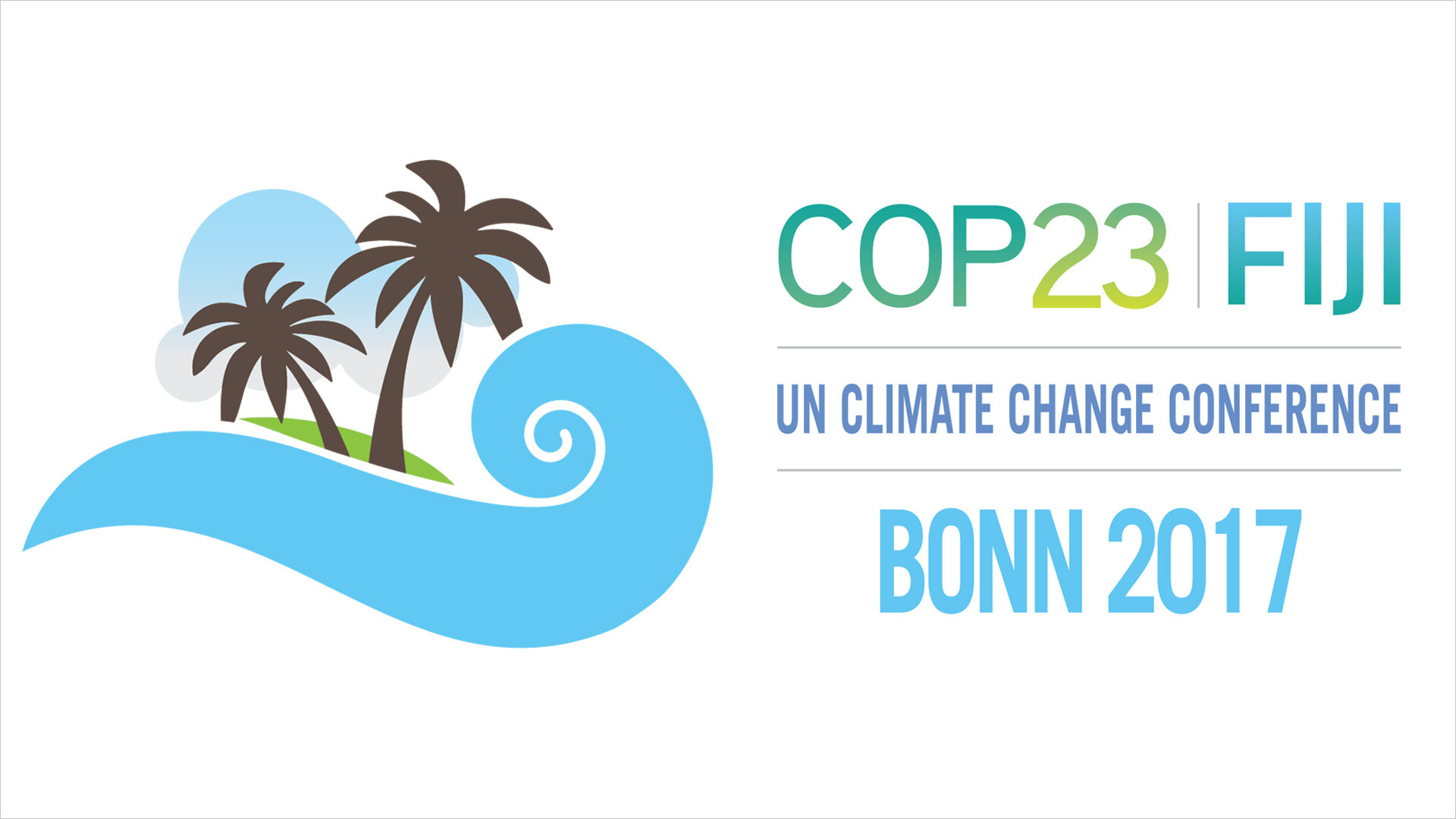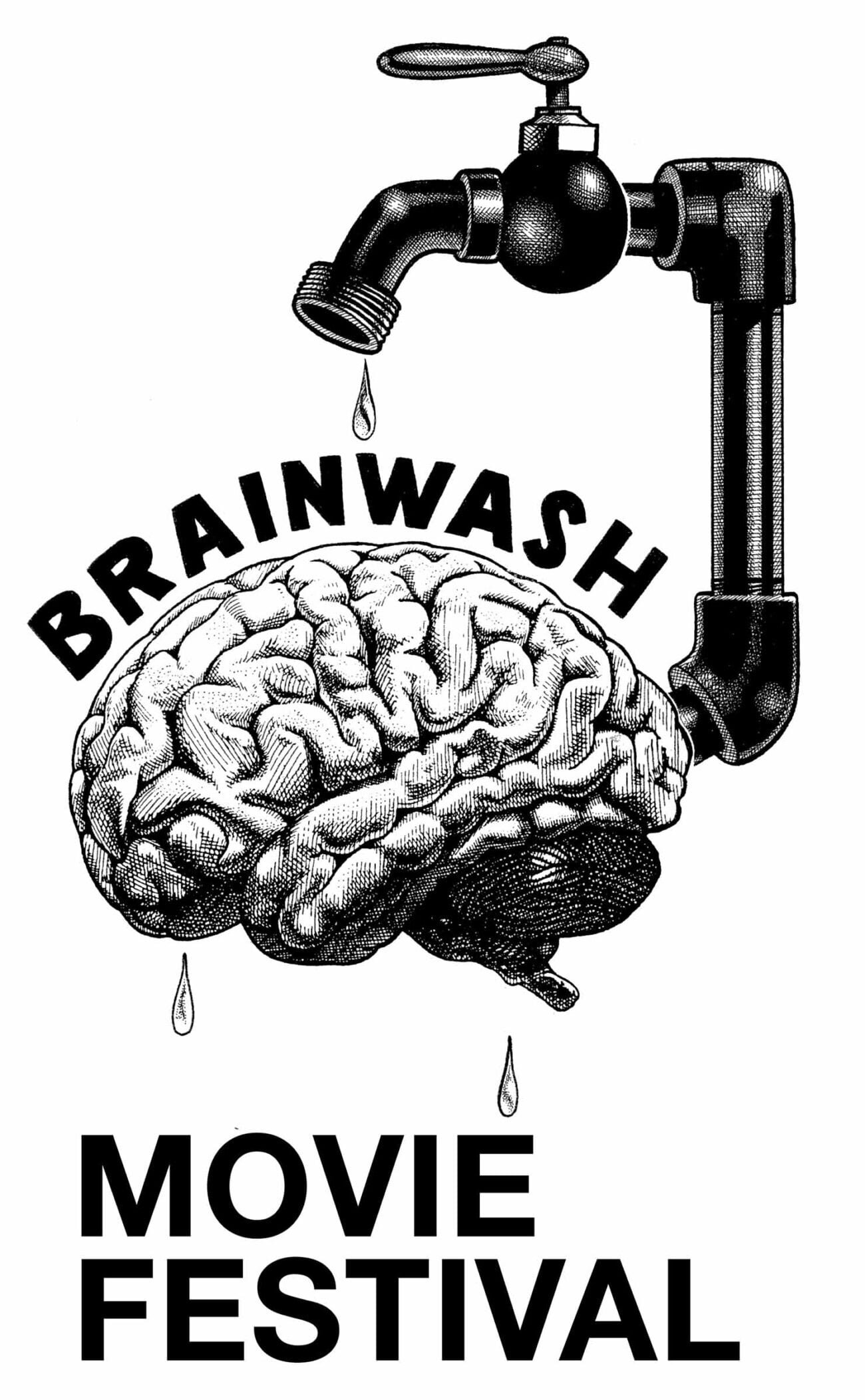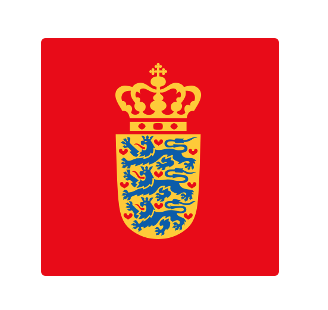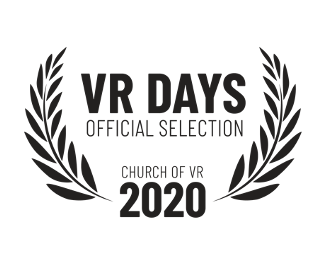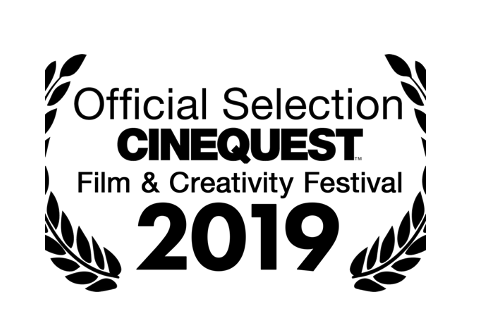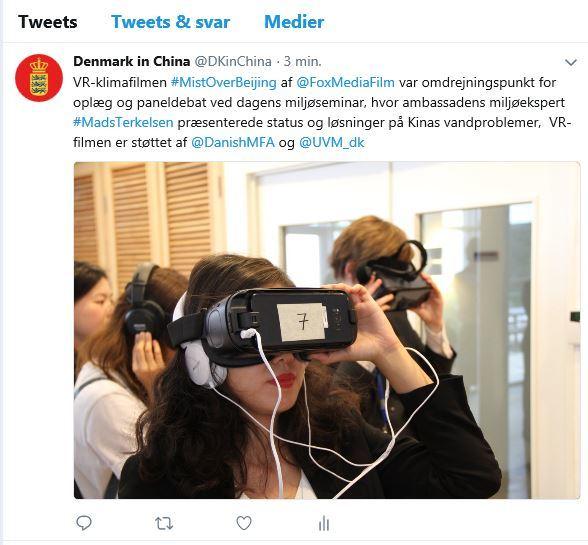







LIONFISH
First of seven films: End of the Line
LIONFISH
First of seven films: End of the Line
"End of the Line" is the name of a VR documentary produced in Cyprus in collaboration with the CYENS Center of Excellence. The film stems from an Erasmus+ educational package, which includes a game manual and a VR experience. It explores the lives of a father and son, the fifth generation of fishermen, who have recently noticed a dramatic decrease in their catch—from substantial to almost non-existent. The VR experience places viewers with the fishing family as they set their nets in the sun and rise early to check them, only to face consistent disappointment. The diminished catch has forced them to sell their fish directly on the street, rather than through fish sellers in the city. One day, the fisherman's son dives from the side of the boat to investigate the cause and discovers pollution, depleted oxygen levels in the water, and an invasive species, the lionfish, which has decimated the local fish population. Furthermore, the lionfish's venomous spines have injured many, often requiring hospitalization. The documentary aims to forge a connection with viewers through the powerful, emotive story of these small-scale fishermen, illustrating the profound impact of environmental issues in a way that words alone cannot convey.

Winter of Change
Winter of Change
WINTER OF CHANGE is part of an EU-funded innovative teaching initiative. Read more below.
"Winter of Change" is an immersive VR film that takes viewers on a captivating journey into the life of Karen-Ann, a 26-year-old Sami woman from the indigenous Sami community, the last remaining indigenous people in Europe. The film combines stunning visuals, immersive virtual reality technology, and ambisonic sound to transport the audience into the frozen landscapes of northern Europe.
Karen-Ann's life has been intricately tied to the herding of reindeer, a tradition passed down through generations in her family. However, a sudden and drastic shift in temperatures during the winter causes the snow to be covered in treacherous layers of ice, making it impossible for the reindeer to find food. Distraught and desperate, the reindeer instinctively ran south, leaving the Sami community in distress.
Realizing the dire situation and the impact it would have on their livelihood, Karen-Ann's family takes a courageous step. They decide to take matters into their own hands and feed the reindeer themselves, deviating from their traditional ways. Fearful that the reindeer may lose their natural instincts, they embark on a remarkable journey to nurse the animals back to health.
Karen-Ann becomes the guiding force behind this risky endeavour. She experiments with human medicine, whispering words of comfort and healing to the reindeer, forging a deep connection with them. As days turn into weeks and weeks into months, the family's efforts gradually pay off. The reindeer start to recover and regain their strength, garnering recognition from their fellow community members.
The reindeer got extra distressed this winter because of climate change.

saving my oasis
Help the Normad dig his past out
saving my oasis
Help the Normad dig his past out
"Saving My Oasis" is an immersive VR film that transports viewers into the heart of M'Hamid El Ghizlane, a once-thriving oasis town in southern Morocco. The film combines visual imagery with abisonic sound to create a multisensory experience that showcases the harsh realities of environmental degradation and the human struggle to protect their heritage.
The story revolves around Halim Sbai, a 48-year-old resident who witnesses the gradual demise of his cherished oasis. As a sandstorm engulfs the town, coating everything in a suffocating yellow haze, the audience can feel the gritty particles in the air and hear the howling winds through the abisonic sound design. The immersive technology enables viewers to experience the town's transformation, making it difficult to breathe and stinging their eyes.
Halim, driven by his deep connection to the land and its history, embodies the resilience of the people who fought against colonial rule.
"Saving My Oasis" is a thought-provoking VR experience that immerses viewers in the beauty and devastation of M'Hamid El Ghizlane. Through the combination of visuals, ambisonic sound, and narrative, the film aims to raise awareness about climate change, cultural heritage, and the interconnectedness of humanity and nature.
Our protagonist, Halim, in one of his childhood quarters. Now slowly being swallowed by the Sahara Desert.
Even if Sahara is eating it self into Halim’s childhood places, music and song still inspire him to keep going.
SAVING MY OASIS
Cinematic VR piece.
Director - ROBERT FOX
Editor - NICOLAS STAFFOLANI
Sound Design JACQUES PEDERSEN
Composer - Tin Hoheili

my drowning island
Join the President to save his people
my drowning island
Join the President to save his people
MY DROWNING ISLAND.
Genre: Immersive VR-Film with Ambisonic Sound
Duration: Approximately 7 minutes
Setting: The South Pacific Island of Kiribati, both above and below the water surface
Synopsis: "My Drowning Island" is an immersive VR film that transports viewers to the world of the South Pacific Island of Kiribati. As they put on their VR headsets, they are instantly transported to the lowest-lying place on Earth, where the smallest rise in sea levels poses a significant threat.
The film follows the former president of Kiribati, Anote Tong, a globally recognized leader in the battle against climate change and ocean conservation. Tong becomes the viewers' guide and takes them on a deeply personal and emotional journey through his homeland.
Through the use of cutting-edge VR technology, viewers experience the beauty of Kiribati's landscapes, the crystal-clear waters, and the vibrant marine life. They witness the daily lives of the resilient Kiribati people, who live in harmony with nature and face the imminent threat of their island disappearing beneath the waves due to climate change.
The film concludes with a call to action, urging viewers to consider the fate of Kiribati as a reflection of the fate of the world. Through this immersive VR experience, "My Drowning Island" aims to inspire empathy, understanding, and a sense of urgency in the face of the global climate crisis.
The experience MIST OVER BEIJING was used in workshops at the prestigious Tsinghua University in Beijing. They rank as #1 in computer science in the World. It was their department of lifelong learning that presented them.
This is the view of a person wearing the VR headset looking around in the experience.
Presentation at COP-23
BiosphereVR was presented at Charlottenborg Art Museum and at various film festivals in the US end Europe.

my drying farm
Help to farm a Dead Sea
my drying farm
Help to farm a Dead Sea
The location of the Jordan valley is situated on the the other side of Israel in the Red Sea
MY DRYING LAND
Cinematic VR Director ROBERT FOX
Cinematic VR editor WIEBE VAN DER VLIET
Art Director LINA HASHIM
Associate producer Jordan WJD DHNIE
Ambisonic Sound Design JACQUES PEDERSEN
Fixer Jordan WORLD FIXER LONDON
Synopsis: In the immersive VR film "My Drying Land," viewers are transported to the Jordan Valley, where they meet Umbekka, a resilient 62-year-old farmer. Umbekka's life has been intertwined with the land since she started farming at the tender age of 12. However, climate change has brought unprecedented challenges to her doorstep.
The story unfolds in a desolate landscape, where everything with water has withered away, including the once-majestic Dead Sea that looms nearby. Umbekka's farm, once teeming with life, now stands dried out and barren, mirroring the fate of neighboring farms that have long been abandoned. Sinkholes, treacherous chasms that swallow the ground whole, pose an additional threat, often collapsing and devouring entire structures.
Compounding the struggles is the fact that the majority of the water supply is diverted to the nearby factories at the Dead Sea salt refinery. In the limited hours when water is available, Umbekka faces the arduous task of safeguarding the precious resource, sending her trusted friends to prevent unauthorized tapping into the pipes.
Resourcefulness becomes Umbekka's ally as she navigates the harsh realities of her environment. With water scarcity at an all-time high, she ingeniously reuses water up to four times, ensuring every precious drop serves multiple purposes. However, her efforts are further compounded by the dwindling demand and low prices in the market for her agricultural produce.
Umbekka's unwavering dedication to her late husband's memory adds another layer of determination to her journey. Following her husband's passing 11 years ago, she vowed never to sell their cherished farm, promising him a legacy that would endure. Despite the odds stacked against her, Umbekka has managed to uphold her promise, relying on her sheer will and determination.
Drawing from her years of experience and the wisdom gained through countless trials, Umbekka has devised a strategy that offers a glimmer of hope amidst the desolation. This resilient farmer has discovered innovative methods and techniques to adapt and survive, refusing to succumb to the harsh realities of her drying land.
"My Drying Land" takes viewers on an emotionally charged and immersive VR journey, highlighting the strength and indomitable spirit of Umbekka as she faces the consequences of climate change head-on. Through the use of ambisonic sound, the audience will be fully immersed in the sights, sounds, and challenges of Umbekka's world, creating a deeply impactful and thought-provoking experience.
Witness Umbekka's determination, learn from her ingenuity, and experience the raw power of resilience in "My Drying Land," a VR film that explores the human spirit's ability to endure in the face of overwhelming adversity.
The woman farmer Umbekka sits in her dry fields studying the koran for hours every day.

mist over beijing
Help a Doctor see through the fog
mist over beijing
Help a Doctor see through the fog
MIST OVER BEIJING
Cinematic VR Director: ROBERT FOX
Camera assistant
Ambisonic sound designer JACQUES PEDERSEN
Cinematic VR editor: NICOLAS STAFFOLANI
Ambisonic music composer: MORTEN SVENSTRUP
MIST OVER BEIJING
Synopsis: "Mist over Beijing" is a virtual reality (VR) film that delves into the harsh reality of pollution in China's capital city. Through the use of ambisonic sound, viewers are transported into the polluted world of Beijing, experiencing the sights, sounds, and emotions of its residents.
The story centres around Dr. Zhu, a renowned Chinese master of medicine who discovers he has lung cancer. In his journey to find answers, he reconnects with one of his former students, now a leading doctor at a local hospital. Together, they delve into the causes of his illness and unravel the connection between his deteriorating health and the severe pollution that has plagued Beijing for years.
As Dr. Zhu receives experimental cancer treatment from the United States, he contemplates the gravity of China's environmental crisis. Despite his limited time left, he engages in a profound dialogue with his son about the future and the impact of their actions. Inspired by his father's revelation, the son, a wealthy investor, decides to embark on a new path, dedicating himself to businesses promoting clean air and environmental sustainability.
Tragically, only six months after the filming, Dr. Zhu passes away. He is remembered as a courageous individual who risked his life to shed light on the pressing issue of pollution in Beijing. The Danish Embassy in Beijing and the director of the film, with the support of prestigious Chinese learning institutions and literary clubs, strive to bring attention to Dr. Zhu's story, making it the talk of the town. The film received significant recognition, with main showings at various festivals in the United States and Europe.
"Mist over Beijing" is a poignant tribute to Dr. Zhu and his family, highlighting their perseverance and the urgency of addressing environmental issues. Through the immersive experience of VR and the evocative abisonic sound, viewers are invited to witness the devastating impact of pollution and reflect on the importance of environmental stewardship.
Presentation to foreign press at the Danish Embassy, Beijing.
Our protagonist Doctor Wzu, playing the famous game “Go” on a public square with friends. He wants to spend his last days here.

hot coffee in ethiopia
Travel to Etiopia to save their coffee-production.
hot coffee in ethiopia
Travel to Etiopia to save their coffee-production.
"Hot Coffee" is an immersive VR film that takes viewers on a journey to Ethiopia, the birthplace of coffee. The story follows a group of small-scale farmers who are determined to revive fading coffee traditions in the face of a changing climate and the rise of a narcotic crop called khat.
For centuries, coffee has been the pride of Ethiopia, particularly in the region of Jimma, known for producing some of the world's finest coffee. The film delves into the rich history of coffee cultivation, dating back to the 8th century, highlighting the region's small organic farms and the traditional practice of growing coffee under shade trees.
However, the effects of global warming have taken a toll on the coffee plants, leading to the spread of cholera diseases that devastate the crops. Desperate to sustain their livelihoods, many farmers have resorted to growing khat, a leafy plant with narcotic properties that can be harvested twice a year. This shift has resulted in a societal problem, as people, including young children, spend their days in a state of khat-induced intoxication.
Amongst this backdrop, a small group of farmers, who also happen to be school teachers, cannot bear to witness the profound change in their community. Driven by their passion for preserving their cultural heritage, they embark on a mission to bring back the once-celebrated coffee traditions, no matter the cost.
Ready for export
HOT COFFEE IN ETHIOPIA
Cinematic VR piece.
Director ROBERT FOX
Editor NICOLAS STAFFOLANI
Sound Design THOMAS PAPE
Assitant ANDERS ANDERSEN
View Oculus Page, century
